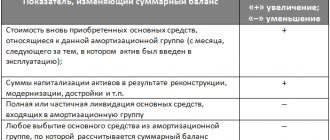All organizations necessarily have to deal with credit institutions. The bank provides services related to finance, and you have to pay for these services. The company incurs fixed costs for banking operations.
What kind of expenses can be considered such expenses? How to correctly reflect them in accounting? How are they treated for tax purposes? What wiring should I use? We explain in detail below, and also consider how specific issues related to the qualification of bank commissions for the most popular services provided to legal entities are correctly resolved.
Why do we need to share expenses? What is the basis for this requirement?
Indirect expenses incurred during the reporting or tax period reduce the profit of the same period. But direct expenses are taken into account as products, works, and services are sold, in the cost of which they are taken into account, that is, the recognition of these expenses may be delayed. The exception is the provision of services. Service providers have the right to take into account direct costs in the same manner as indirect ones. Consequently, direct expenses in tax accounting, in contrast to indirect ones, will form not only the cost of sales, but also the tax value of work in progress, as well as unsold finished products. This forces organizations to take a more careful approach to the issue of justifying the distribution of costs into direct and indirect.
Agreement with a lawyer
There are three types of agreement with a lawyer:
- 1. an agreement on the provision of paid services is concluded for the provision of legal advice or the preparation of legally significant documents;
- 2. an agency agreement is concluded for a lawyer to represent the interests of the company in court;
- 3. a mixed contract contains elements of both a contract for the provision of services for a fee and a contract of agency.
The agreement is drawn up in simple written form, then it must be registered in a lawyer’s office.
The contract states:
- information about counterparties;
- information about the lawyer’s membership in the bar association;
- subject of the contract;
- deadlines;
- the cost of a lawyer;
- procedure for covering lawyer's expenses;
- place of conclusion of the contract;
- date of conclusion of the contract and start date of the contract;
- liability of the parties for violation of obligations.
After execution of the contract, the parties draw up and sign the act. It is drawn up in free form, making sure to indicate the details of the parties.
The act of execution of the contract is attached to the contract with the lawyer. It is the primary document on the basis of which the costs of paying a lawyer are taken into account.
What are direct costs?
The distribution of expenses into direct and indirect, as well as the procedure for assigning them to the cost of production, is determined by the company itself based on the characteristics of the business. At the same time, certain principles must be taken into account: for example, the Tax Code defines an approximate list of expenses that are considered direct, for example, the cost of purchasing raw materials or materials, purchasing components; wages and compulsory insurance contributions accrued on it; the amount of accrued depreciation on fixed assets. The inspectors note that Chapter 25 of the Tax Code does not contain direct rules limiting companies in classifying certain expenses as direct or indirect. Having determined the list of direct expenses, the organization should consolidate them in its accounting policies.
What are indirect costs?
Indirect costs are costs associated with the production and sale of products, works, and services that companies have the right to include as expenses in the period in which they are incurred. The Ministry of Finance, in letter dated February 10, 2020 No. 03-03-06/3/6878, recalled that those costs that are not classified as direct in the accounting policy and are not non-operating are recognized as indirect. Thus, officials specified the types of such costs. Let us note that previously there was no clarity on this issue. Now clarifications from financiers allow accountants to correctly evaluate such expenses, and, accordingly, correctly take into account both direct and indirect expenses for tax purposes and the correct financial result.
How can organizations divide costs into direct and indirect?
It is more profitable for any company to consider as many expenses as indirect as possible. In this case, you can recognize their entire amount already in the current reporting period. However, tax authorities insist that firms do not have the right to arbitrarily classify expenses as indirect and are obliged to justify why they cannot be considered direct.
note
Are direct or indirect expenses the rent for the building in which the organization's production workshop is located? The Supreme Court arbitrators answered this question. According to them, rental expenses for tax purposes are considered direct expenses. This position was expressed in the Determination of January 12, 2020 No. 305-KG14-7150.
According to the Tax Code, each company has the right to independently establish in its accounting policy which expenses it classifies as direct and which as indirect (paragraph 5, paragraph 1, article 318 of the Tax Code of the Russian Federation). At the same time, businesses have virtually no real independence in the distribution of expenses between direct and indirect. The Ministry of Finance in letters dated May 19, 2014 No. 03-03-RZ/23603, dated August 30, 2013 No. 03-03-06/1/35755 indicated the need to justify the established list of direct expenses. The regulatory authorities emphasize that the list of direct expenses, although determined by organizations independently, cannot be arbitrary. A business case is required. This approach is also supported by the courts in the Resolutions of the Presidium of the Supreme Arbitration Court of the Russian Federation dated November 2, 2010 No. 8617/10, the Arbitration Court of the West Siberian District dated May 23, 2020 in case No. A27-10958/2020, the Determination of the Supreme Arbitration Court of the Russian Federation dated May 13, 2010 No. VAS- 5306/10 in case No. A71-8082/2009 and others.
Amount of expenses
The economic justification of costs can also characterize the quantitative assessment of the costs incurred, i.e. how reasonable and necessary their size was from the point of view of market prices. This position is expressed, in particular, in the Resolution of the Federal Antimonopoly Service of the Moscow District dated July 6, 2005 in case No. A72-6211/04-8/585. As judicial practice shows, in order to recognize costs as unjustified, it is necessary to evaluate their size in relation to the costs of other persons in comparable circumstances (Resolution of the Federal Antimonopoly Service of the Moscow District of July 28, 2005 in case No. KA-A40/6950-05).
It should be noted that the tax authorities may have doubts about the economic justification of significant expenses aimed at paying for legal services. However, in judicial practice there are cases where significant sums of money were found to be justified. Thus, the arbitration court allowed the organization to write off in tax accounting the costs incurred to pay for the services of legal firms, which amounted to a significant share of the organization’s expenses - 38% of the total amount. The position of the court is reflected in the Resolution of the Federal Antimonopoly Service of the North-Western District dated August 30, 2005 in case No. A56-2639/2005.
Practice shows that the cost of the claim can be used to determine the amount of fees for legal services. In particular, the arbitration court recognized as justified the representative's remuneration in the amount of 10% of the amount of money won in the legal dispute (Resolution of the Federal Antimonopoly Service of the North-Western District of July 16, 2003 in case No. F04/3351-1095/A45-2003).
What should you consider when approving the list of direct expenses?
This is facilitated by a well-designed accounting policy. To develop a tax list of direct expenses, you can use accounting rules for cost formation. The Ministry of Finance and the Federal Tax Service recommend including in direct expenses all costs that are included in the cost of products (works, services) in accounting. It should be taken into account that, in comparison with the recommended list of direct expenses from the Tax Code, the accounting cost consists of a much larger number of costs. This means that in this case the company will take into account fewer expenses over the period of their occurrence. At the same time, the positive thing is that there will be no differences with accounting according to PBU 18/02 in this part.
What is the economic feasibility of expenses?
The Ministry of Finance in letters dated May 26, 2020 No. 03-03-06/1/30165, dated January 28, 2020 No. 03-03-06/2/2986, dated January 30, 2020 No. 03-03-06/1/3586 explained that the validity of expenses for tax purposes should be assessed taking into account circumstances indicating the taxpayer’s intentions to obtain an economic effect as a result of business or other economic activity. A similar position is set out in the Determinations of the Constitutional Court of the Russian Federation of June 4, 2007 No. 320-O-P, of June 4, 2007 No. 366-O-P, of December 16, 2008 No. 1072-O-O.
Tax accounting
Accounting for legal expenses differs in a number of rules. All costs must be confirmed. These papers can be used as confirmation:
- Checks and receipts.
- Agreements for the provision of legal services.
- Travel tickets.
- Extracts from investigative bodies.
It is recommended that the costs of pre-trial settlement be specified in the agreement with the lawyer. Costs are calculated on the basis of documents attached to the case.
The costs will be classified as non-operating expenses. Expenses that can be included in this composition are stipulated by Article 106 of the Arbitration Procedure Code of the Russian Federation and Article 94 of the Code of Civil Procedure of the Russian Federation. However, the list considered is not exhaustive. Sometimes the court recognizes legal expenses that are not included in the list. For example, these may be the costs of copying documents, translating them, or notarizing them. Expenses are not recognized when their connection with the proceedings is not obvious.
When expenses will definitely not be recognized
The conditions for recognition are specified in paragraph 1 of Article 252 of the Tax Code of the Russian Federation. In particular, these are:
- Validity.
- Availability of supporting documents.
Expenses are not recognized in the following cases:
- No connection to legal proceedings. For example, a company entered into a subscription service agreement with a law firm. During the trial, the manager contacted lawyers about something unrelated to the case. Related expenses will not be recognized. In this case, they will be taken into account as part of expenses for legal services on the basis of paragraph 1 of Article 264 of the Tax Code of the Russian Federation.
- The representative did not take part in the proceedings. For example, the company paid for representation services, but the representative did not take part in any meeting.
- The firm is not a party to the proceedings. That is, the subject must be either a plaintiff, or a defendant, or a third party. If the firm is not a party, there will be no basis for recognizing legal costs.
- It is not the company that is involved, but its employee. If a company employee is held accountable, it will be his personal matter. That is, the company does not have to take into account associated costs.
Sometimes the company resorts to pre-trial settlement of the case. Related expenses for lawyers and consultants will also not be recognized. The corresponding decision was given by the Presidium of the Supreme Arbitration Court in Resolution No. 9131/08 of December 9, 2008.
Recognition of state duty
The fee must be included as an expense on the date the claim is filed. The latter is determined on the basis of the court's note on acceptance of the claim. Some do this on the payment due date, but this is not correct. The duty must be included in non-sales services on the basis of paragraph 1 of Article 265 of the Tax Code of the Russian Federation.
The fee may be returned by court decision. The amount received must be included in the structure of non-operating income on the basis of paragraph 3 of Article 250 of the Tax Code of the Russian Federation. Inclusion is made on the date the decision on the refund of the duty comes into force.
On what date should expenses be taken into account?
Legal costs are considered non-operating, and therefore they will be recognized on these dates on the basis of paragraph 7 of Article 272 of the Tax Code of the Russian Federation:
- Settlement date based on the terms of the agreement.
- The date of presentation to the payer of the papers on the basis of which calculations are made.
- The final date of reporting or tax time.
The company has the right to set its own dates for reflecting expenses on the basis of Letter of the Ministry of Finance No. 03-03-04/2/149 dated May 26, 2006. Typically, this is the date the service agreement is signed. For example, a company entered into an agreement with a lawyer. The date of signing the document will be the date of recognition.
Legal expenses reduce taxable income, regardless of whether they are recovered through the court. What does this mean? If the entity wins the case, the person found guilty must pay all of the winning party's legal costs. However, expense recognition is done regardless of wins or losses.
IMPORTANT! The costs of a third-party lawyer are also taken into account when the organization has a full-time lawyer on staff. However, if the work is carried out by a full-time lawyer, the costs are reflected in the structure of labor costs on the basis of Article 255 of the Tax Code of the Russian Federation. Expenses for your lawyer cannot be recovered from the losing participant in the case.
Documentary confirmation
The largest portion of expenses is legal fees. Related expenses can be verified. The following documents can be used as confirmation:
- Agreement with a specialist.
- Certificate of completed work.
- Payment papers.
The documents must indicate a list of services provided and their cost. It is necessary to record services in such a way that their connection with the proceedings can be traced. It is also recommended to prepare documents for confirmation:
- Power of attorney for a representative.
- Claim.
- Protocol of the proceedings.
- Judgment.
IMPORTANT! The enforcement fee is not taken into account when determining income tax.
How to recognize expenses for companies providing services?
In general, companies take into account direct costs as they sell products, works, and services. There is an exception for companies engaged in the provision of services. Providers of services can take into account direct expenses in the same way as indirect ones, by the period of their occurrence without reference to the date of provision of services, provided that this is enshrined in the accounting policy. Such companies have the right to attribute the amount of direct expenses incurred in the reporting (tax) period in full to the reduction of income from production and sales of this reporting (tax) period without distribution to the balances of work in progress. Despite this, companies providing services must still divide all expenses incurred into direct and indirect, since the Tax Code deals specifically with the special procedure for recognizing direct expenses when providing services, and not with the idea that all expenses of such organizations can be considered indirect. There are no exceptions to this rule of the Tax Code of the Russian Federation. At the same time, service providers may not use the simplified procedure for recognizing direct expenses.
note
The Ministry of Finance does not consider it an error if a production organization states in its accounting policy that all costs associated with the production of goods are direct (letter dated January 11, 2008 No. 03-05-05-01/3).
Costs of paying a lawyer - what is left behind the scenes
*Please note: If an organization has used the services of a lawyer to conduct a case in court, it is necessary to justify why a lawyer and not an in-house lawyer. If the organization has a lawyer on staff, and if the lawyer’s fees are significant, the tax authorities will ask you to justify this circumstance.
The situation will be even more complicated if there are attorney fees for consulting services. In this case, the above letter from the Ministry of Finance will not be correct.
The above explanations from the Ministry of Finance left behind the scenes another feature of trials and the costs of paying lawyers.
Both the civil and arbitration procedural codes of the Russian Federation provide the right to a party to recover from the other party legal costs, which include the costs of paying a lawyer. Thus, on the one hand, according to the Tax Code of the Russian Federation, expenses incurred by an organization to pay for a lawyer’s services can be taken into account as part of income tax expenses, being precisely expenses. And if these costs are recovered according to the rules of the same procedural codes, the costs are “compensated”. In the latter case, the organization generates income.
It is also necessary to take into account that the courts do not always recover the full amount of attorney fees; more often, the recovery is made “within reasonable limits,” in a significantly smaller amount.
If the court recovers attorney's fees in an amount less than what was paid to the attorney, the remaining uncollected portion of the attorney's fees may be accepted as expenses.
As of May 31, 2020
Moscow
Can an organization consider all costs to be indirect?
Organizations engaged in the production of products, performance of work or provision of services have the right to expand the list of expenses that they classify as direct, but do not have the right to consider all expenses indirect. Such clarifications are given in letters dated January 26, 2006 No. 03-03-04/1/60, dated January 20, 2006 No. 03-03-04/1/53, dated January 16, 2006 No. 03-03-04/4 /5 and dated December 28, 2005 No. 03-03-04/1/464. That is, in the company’s accounting policy it is possible to establish a list of direct expenses different from that proposed by Article 318 of the Tax Code. In particular, they can consider as direct those expenses that, according to Article 318 of the Tax Code of the Russian Federation, are indirect. Moreover, the Ministry of Finance does not consider it an error if a production organization states in its accounting policy that all costs associated with the production of goods are direct (letter dated January 11, 2008 No. 03-05-05-01/3).







